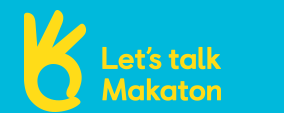
Rowan School
Meeting children's needs


Our teaching approaches are multi-sensory and each child has individual programmes of work, carefully planned to meet his/her needs. In planning for the specific needs of each child there is close liaison between teaching staff, speech and language therapists, parents/carers and educational psychologists to create a co-ordinated approach.
We also regularly evaluate, reflect and update to recognise and meet changing needs.
For many of our pupils visual support is key to their understanding and learning. We use whole school communication systems such as Makaton signing and rebus symbols to support and encourage speech and to help children understand information and instructions. For more information about Makaton please click here


Alongside Sheffield speech and language therapists, we are predominatly using Core Vocabulary in school. Some of the many benefits of this communication system are the greater range of communication functions across all areas, it is consistent and predictable, it supports spontaneous communication and it is supported by the Autistic community.
We also provide individual visual interactive timetables to establish routines, aid transition from one activity to another and to help children understand and feel safe in the school environment.
We aim to develop the ability of the children to express, understand and reflect upon their needs, feelings, experiences, ideas and choices, and to interact effectively with other people in social settings.
There are many visits outside the classroom places to such as parks, libraries, museums, shops, transport centres, etc. so that children can learn in practical ways, experience a variety of social situations and learn how to behave and interact appropriately in those settings.
For the older children there are exciting opportunities for field trips and residential holidays.
Rapport-based Musical Interaction
Since 2020, The Rowan School has been pioneering and embedding the practice of Rapport-Based Musical Interaction (RBM), an approach to music-making for the purpose of making connections and building relationships between the staff and the children.
The approach has been developed by Matthew Laurie, a musician and social learning expert with a long history of developing Intensive Interaction provision in many different special -needs settings. Underpinned by research into rapport and well-being, RBM is designed to be straightforward and can be implemented by staff with or without previous musical experience.
Rapport-Based Musical Interaction is a valuable feature in the timetable of each class and the continued development of the approach is supported by a Community of Practice that Matthew Laurie facilitated when working in the school. This work is now led by a group of experienced and passionate teachers who love music and work hard to support the rest of the staff team to make more wonderful music with the children.





Intensive Interaction
Intensive Interaction is an evidence based approach that is now established in many learning disability and autism care and educational services.
The approach is usually based around one - one interactions between a practitioner and a learner who is typically at an early stage of communication development.
All children at Rowan have access to Intensive Interaction sessions on a regular basis. These will look different depending on the individual needs of the child.
